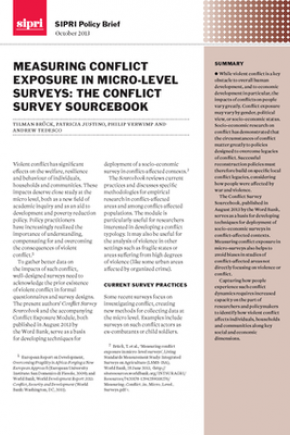Measuring Conflict Exposure in Micro-level Surveys: The Conflict Survey Sourcebook
While violent conflict is a key obstacle to overall human development, and to economic development in particular, the impacts of conflicts on people vary greatly. Conflict exposure may vary by gender, political view, socio-economic status or mere bad luck. Socio-economic research on conflict has demonstrated that the circumstances of conflict matter greatly to policies designed to overcome legacies of conflict. Successful reconstruction policies must therefore build on specific local conflict legacies, considering how people were affected by war and violence.
The Conflict Survey Sourcebook, published in August 2013 by the World Bank, serves as a basis for developing techniques for deployment of a socio-economic survey in conflict-affected contexts. Measuring conflict exposure in micro-surveys also helps to avoid biases in studies of conflict-affected areas not directly focusing on violence or conflict.
Capturing how people experience such conflict dynamics requires increased capacity on the part of researchers and policymakers to identify how violent conflict affects individuals, households and communities along key social and economic dimensions.

